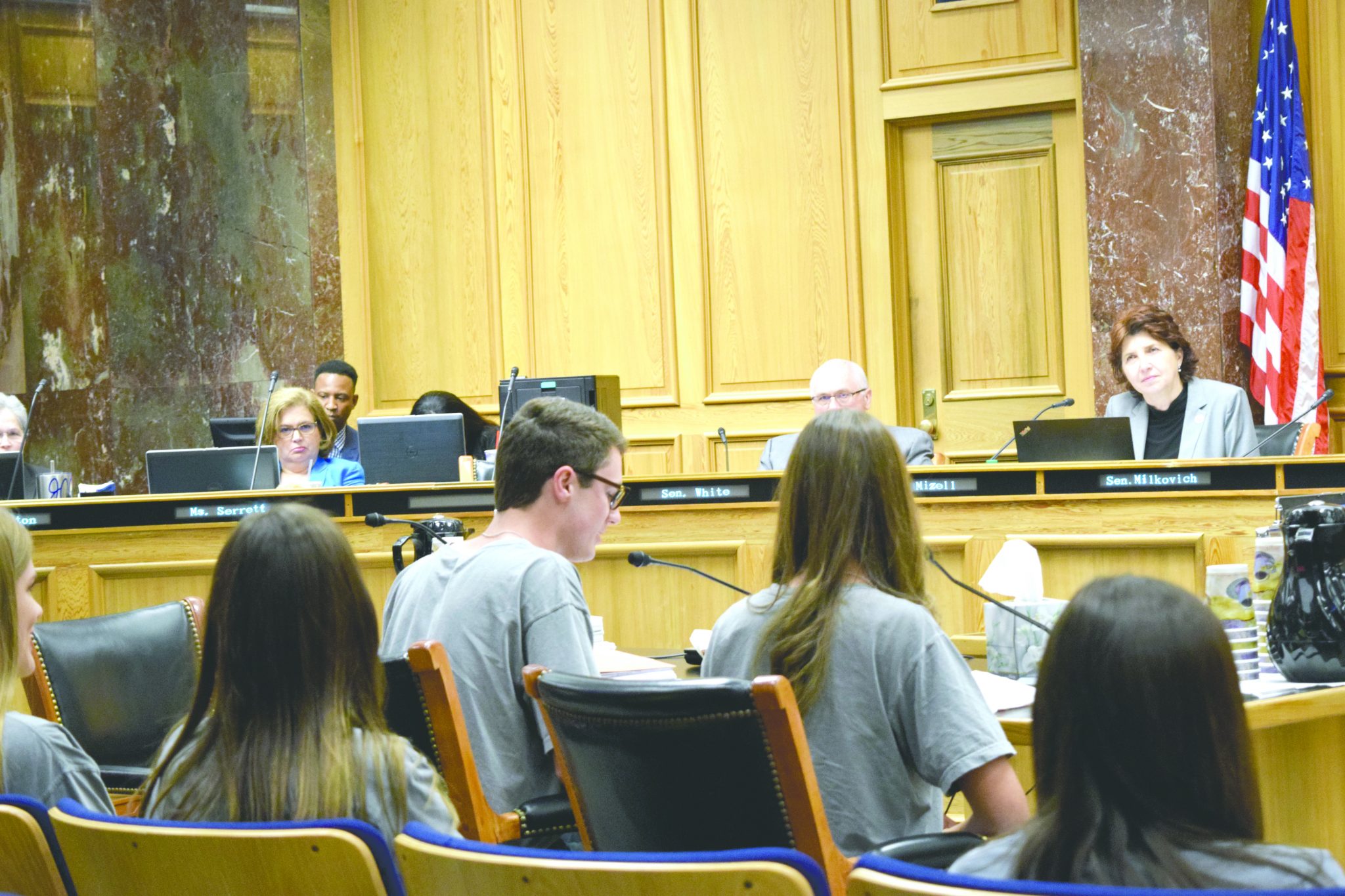Religious expression bill passes House committee
Kaylee Poche
and Devon Sanders
LSU Manship School News Service
BATON ROUGE — A bill that would allow school employees to pray with students during school hours is one step closer to becoming law, advancing out of the House Education Committee on Tuesday by a 10-4 vote.
The so-called “permission-slip-to-pray” bill would only apply if all students present during the prayer obtained permission slips from their parents allowing a certain teacher or coach to pray with them. The Senate passed the bill unanimously last month.
Sen. Ryan Gatti, R-Bossier City, authored the bill after the Bossier and Webster Parish school boards changed policies in their employee handbooks to prohibit teacher involvement in student-initiated prayer during school hours.
The boards took this action following lawsuits against the parishes for allegedly promoting Christianity in public schools.
The changes included forbidding school employees from bowing their heads, holding hands with students or kneeling during any kind of prayer during the workday. Currently, teachers are allowed to participate in student-led prayer only if it is before or after school hours and does not interfere with their instructional duties.
Democrats are often skeptical about expanding prayer in public schools, but all five committee Democrats present at the hearing voted for the bill. All four votes against it came from Republicans, who seemed worried that the bill could backfire on them by triggering lawsuits challenging the state’s prayer laws.
Michelle Ghetti, a Southern University constitutional law professor, raised concerns over the bill’s constitutionality, worrying that its passage would lead to lawsuits over separation of church and state.
Ghetti is also an attorney for the Alliance for Defending Freedom, a national Christian organization that supports religious freedom and opposes same-sex marriage and abortion.
“Louisiana has some of the strongest school prayer laws that are possible on our books right now,” Ghetti said. “I can guarantee you, if this law passes, we will be sued. The state will be sued.”
Rep. Rick Edmonds, R-Baton Rouge, said deciding how to vote had kept him up most of the night. As a pastor, he said, he supported freedom of prayer. But he also feared that a wave of litigation could undermine Louisiana’s religious freedom laws.
“In every case I’ve read, this bill would have been in violation and would have failed every time,” Edmonds said. “We have worked for decades defending religious freedom. But my great fear is that we create standing that would become more of a nemesis to our moving forward than what you already have.”
Gatti said he had talked to school employees affected by the rule changes, and they wanted more protection against the new restrictions. He told the committee that a teacher had approached him after accidentally bowing his head during a prayer and was worried he would be reported for violating the handbook.
“You know, y’all have really lost all of your rights as teachers when you can’t bow your head,” Gatti said, recalling what he told the school employees. “It can’t get any worse than that.”
“Everyone in the school goes to the same church on Sundays, but Monday through Friday, they’re under a gag order,” he added.
Two students testified in support of the bill on behalf of Protect Prayer, a group advocating for freedom of religious expression in schools.
“These are the people who we look up to, who we want to be mentored by and guide us in our relationship with Christ,” Katie Walker, a Haughton High School senior, said, referring to teachers.
Edmonds ultimately voted against the bill along with three other Republicans, Reps. Beryl Amedee, of Houma, Reid Falconer of Mandeville and Mark Wright of Covington.
Sen. John Milkovich, D-Shreveport, then presented a bill that would have taken Gatti’s a step further, allowing teachers to participate in student-led prayer without requiring a permission slip.
The bill did not make it out of committee, and Ghetti, the Southern University professor, expressed similar legal concerns about that proposal.
“This has no limitations,” Ghetti said, regarding Milkovich’s bill. “If I felt like the other one is unconstitutional–and I did, this one is even more unconstitutional. It would be 100 percent unconstitutional.”




